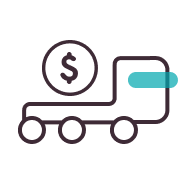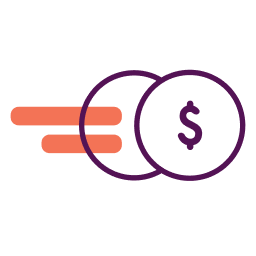Equipment Financing
Equipment financing is the use of a loan or lease to acquire equipment for your business. It allows a business to acquire or upgrade equipment without laying out large sums of money.

Equipment Financing Details
Loan Amounts
$5,000 – $10+ million
Interest rates
3% – 30% APR
Repayment Terms
12 – 120 months
Turnaround Time
2 business days to weeks
Pros
- Low APRs available
- Predictable payments
- Can help build business credit
- Equipment serves collateral
Cons
- Can require high down payment
- Requires strong credit for good terms
- Financed equipment can become outdated while payments continue
Get to Know Equipment Financing
Gerri Detweiler • Updated March 24, 2022
What is Equipment Financing?
You can finance the equipment your business needs by getting a small business loan or an equipment lease. When financing equipment, a business gets a loan to finance the purchase, and owns the equipment financed.
With leasing, the business makes payments with the option to purchase that equipment at some point in the future. Either way, the equipment serves as collateral for the loan or lease, and if the business is unable to make payments, the lender or lessor has the right to repossess that collateral.
Equipment Financing Offers
How Does Equipment Financing Work?
Equipment financing involves two main steps:
- Find the equipment you need for your business, then
- Explore options for financing that equipment.
Equipment financing may be available through several sources:
- The manufacturer or dealer selling the equipment
- Banks and other financial institutions
- Equipment financing companies, including online lenders
- Marketplaces that match borrowers with financing companies offering loans or leases based on borrower qualifications.
Curated funding options, smarter decisions
The world’s first financial health suite that streamlines access to the best financing options. Compare your top small business financing options, from over 160 financial products – with Nav.
Lease or Buy Equipment: Which is Best?
You have three options when it comes to obtaining equipment:
- Get a loan
- Lease it
- Buy it outright
We’ve already discussed the pros and cons of equipment loans, so let’s review some advantages of the other two options.
When leasing equipment, you typically spend less upfront. It’s easy to upgrade equipment after your lease ends, which comes in handy if your equipment is something like a computer that quickly becomes obsolete. Also, leases may offer tax benefits. If you’re leasing your equipment, you will save money up front, which also helps cash flow, and you can often get access to the latest technology.
One of the drawbacks to leasing is that, over time, you’ll spend more than you would to buy the equipment outright. At the end of your lease, you’ll have to purchase it or find another solution to replace it, or even extend the lease, if that’s an option.
If you buy equipment outright, it is yours. You can sell it if you no longer need it. But buying equipment requires you to spend cash to acquire it. If it becomes outdated, you’ll have to replace it, and you may find it worth much less than you paid for it.
You may be able to turn equipment you own into cash for your business using a sale-and-leaseback. There you essentially sell the equipment to a financing company for cash and lease the equipment back from them. At the end of the term, you can return the equipment or buy it from the lender. Sale leasebacks usually work on a 2:1 ratio. If you want $150,000 in cash, your equipment should be worth $300,000. Why consider this option? You get cash from selling the equipment to your lender, which you can use to operate or grow your business, and you still have access to the equipment. This may be cheaper than financing new equipment.

What Types of Equipment Can Be Financed?
Most tangible assets used in the operation of a business may be financed. A few examples:
- Office furniture and fixtures
- Computers and IT equipment
- Restaurant equipment
- Healthcare equipment
- Dental practice equipment
- Hair or nail salon equipment
- Construction equipment
- Manufacturing or industrial equipment
- Trucks and trailers
- Farm and agricultural equipment
- Snow removal and landscaping equipment
In fact, any business that relies on equipment can probably find some type of financing for that equipment.
What You Need to Know About Equipment Financing
Pros of Financing Business Equipment
Pros
- Low APRs available to qualified borrowers
- Predictable monthly payments
- Helps build business credit
- Preserves cash for other uses
Small business owners may benefit from lower APRs compared to other small business financing options. You will typically see rates of 8-25%, though lower rates are available to well qualified borrowers.
Most businesses will be able to benefit from depreciation as a tax deductible business expense.
An equipment loan will often be reported to at least one major business credit reporting agency (including the Small Business Financial Exchange). If so, and payments are made on time, you can build business credit, which can help you qualify for other types of financing down the road. And with predictable monthly loan payments, you can budget more effectively.
Cons of Financing Business Equipment
Cons
- Can require high down payment
- Requires strong credit for good terms
- Financed equipment can become outdated, but you are stuck with it at the end of your payment term
A business equipment loan isn’t for everyone. You may need a significant down payment and good credit to qualify. Financing business equipment is, of course, more expensive than paying for it with cash. Instead of buying equipment at a discount by paying cash when it’s on sale, you’ll pay more when you add in the cost of financing.
When you buy equipment, you may end up with outdated equipment before you’ve even paid off your loan.
The costs of equipment financing are often lower than other flexible financing options. But don’t assume that’s the case. For example, you may be able to pick up a good piece of used equipment at a bargain price, pay with it using a low-rate business credit card, and come out ahead.
100+ Business Credit Cards in One Click
Business credit cards can help you when your business needs access to cash right away. Browse your top business credit card options and apply in minutes.
Watch Out For:
Read the lease agreement carefully and don’t hesitate to get professional advice, especially for expensive equipment.
Among others, you want to avoid contracts that:
• Make it easy for the lessor to declare you in default• Have excessive fees
• Make it very difficult to avoid renewal of your lease
• Include unclear or unreasonable buyout or return terms at the end of the lease
Also keep in mind that the lessor will almost certainly file a UCC filing which will appear on your business credit reports. This isn’t necessarily negative, but you do want to make sure it is released when the lease is completed.

Is Equipment Financing Right for Your Business? | 13 min
Learn all about equipment financing and how to leverage it to grow your business with this webinar.

When is Equipment Financing A Good Idea?
Equipment financing is an excellent way to acquire expensive financing without a significant outlay of cash. It can be especially helpful for growing businesses that have a proven market for their products and need equipment to meet demand.
It can also help a business increase revenues by bringing services in house; for example, by adding imaging equipment to a veterinary or medical practice or by adding more stations in a salon.
On the other hand, if the business takes on payments for equipment that doesn’t generate revenue, that additional expense can hurt cash flow. Equipment often depreciates, and can be hard to sell when it’s no longer needed.
Qualifying for Financing Business Equipment
Eligibility requirements for business equipment financing varies blender, but there are a few general requirements that are common:
- In business 12+ months
- Personal credit score of 650+
- Revenues of $50,000+
Strong business credit scores may help. You can review your business credit report to see your scores with Experian, Dun & Bradstreet, and Equifax before you apply. Keep in mind that some lenders will check the FICO scores of the business owner(s) as well.
Startups will often have a harder time qualifying for equipment financing, but there are exceptions. A business owner with years of experience in an industry may be able to qualify for equipment financing even if the business is brand new. An example would be a physician opening her own practice.
Expect to be asked for ID (your driver’s license will work) and proof of your role at your company.
The lender may require an appraisal to verify the market value of the equipment you want to finance. Loan terms (or lease terms) will often be directly related to the useful life of the equipment.
The lender will review your application to determine whether you qualify as well as the APR you’ll pay. You’ll be presented with equipment financing options and terms. Most loans have terms of a few months up to 10 years depending on the amount borrowed and the useful life of the equipment.
If you have been turned down for lines of credit or other types of small business loans because you don’t have collateral, you may have more luck with equipment financing, simply because the equipment you buy or lease is your collateral.
SBA Loans for Equipment Financing
Two SBA loan programs are also popular for financing equipment:
- SBA 7(a) loans may be used to finance equipment up to $5 million with terms as long as 10 or even 15 years based on the useful life of equipment.
- SBA 504 loans may be used to finance equipment. There is no maximum loan size but the SBA CDC portion of the loan caps out at $5 million for most businesses, while a private lender provides another loan of up to 50% of the project.
SBA loans carry attractive interest rates and terms, and are worth exploring if your business qualifies.
Nav’s Verdict: Equipment Financing
If you’re looking for a long-term equipment purchase or shorter-term equipment leasing, shop with financing partners like your bank, alternative lenders, lenders who specialize in equipment financing, or lenders who work with the equipment vendor to find the lowest cost option with the best terms for your business equipment loan.
Related Resources
- SBA Loans
- Bank loans
- Merchant Cash Advance
- Microloans
- Cash Flow Loans
- Online Business Loans
- Construction Business Loans
- Retail Business Loans
- Restaurant Loans & Financing Options
- SBA 7(a) Loans
- SBA Express Loans
- Business Credit Cards
- Equity Crowdfunding
- Reward-Based Crowdfunding
- Equipment Financing
- Invoice Financing
- How Trade Credit Can Help Your Business
- Medical Practice Loans
- Manufacturing Business Loans
- Commercial Real Estate Loans
- SBA Microloans
- SBA 504 Loans
- SBA Disaster Loans
Have at it! We'd love to hear from you and encourage a lively discussion among our users. Please help us keep our site clean and protect yourself. Refrain from posting overtly promotional content, and avoid disclosing personal information such as bank account or phone numbers.
Reviews Disclosure: The responses below are not provided or commissioned by the credit card, financing and service companies that appear on this site. Responses have not been reviewed, approved or otherwise endorsed by the credit card, financing and service companies and it is not their responsibility to ensure all posts and/or questions are answered.
Leave a Reply Cancel reply


looking for equipment financing for our customers.
You are welcome to refer your customers to Nav to review their financing options.
Very interested
Hello, we would like to talk to someone about financing . We started a small business (trash company) and we need to purchase another trash truck as we are getting very busy and need another vehicle.
Please feel free to reach out to Nav’s Credit & Lending team at 844-636-2445.